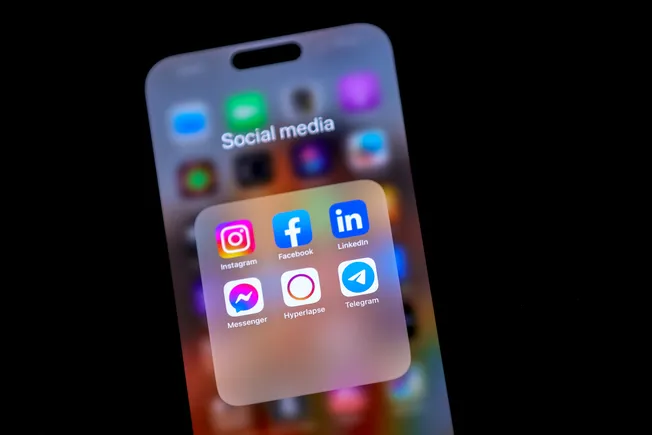The following is a guest post from Andrew Fingerman, CEO at PhotoShelter. Opinions are the author’s own.
As hotels work to rebuild their staff after COVID-19, budgets are tighter and there are fewer resources to invest in creative marketing campaigns, despite the need to engage potential travelers now more than ever. Marketing departments need to do more with less, forcing teams to embrace new strategies for digital and content efforts to meet their goals.
In search of cost-effective, high-ROI solutions, hotel teams have added artificial intelligence to their tool belts — and they’re seeing results. AI streamlines workflows, assists creative professionals in generating targeted content and even personalizes outreach to potential customers — ultimately helping to boost sales, tourism, customer loyalty and overall brand awareness.
Through creating targeted marketing strategies based on guests’ preferences, past behavior and demographics, marketers can break through today’s saturated hotel industry, measure key metrics behind their content and pivot in real-time to engage their target audiences.
Streamlining marketing teams’ workflows
Some 88% of marketers believe their organization must increase its use of automation and AI to meet customer expectations and stay competitive.
When we dive into a hotel brand’s content strategy, AI can assist in uplevelling traditionally complex processes like digital content management and distribution. Travel is inherently visual, and there’s a prime opportunity for hospitality marketers to draw their audience in with stunning photos and videos — but the challenge is efficiently storing, managing and distributing their hotel’s content.
The task for hospitality marketers is to match the perfect visual content, with the right campaign, to the right audience, at the right time. Tools like digital asset management platforms ensure the content is visible and accessible across all teams, so there’s no risk of siloed, disconnected content that doesn’t match the story behind a destination.
Connecting travelers to a brand goes beyond the storyline; embracing fast-moving trends can be a core part of the job. Luckily, metadata-less searching and AI’s auto-tagging capabilities can simplify finding the perfect graphic for content teams that need to continuously push out campaigns quickly.
One of the most important parts of developing a hospitality brand is being consistent. For larger hotel chains that manage multiple locations, ensuring all franchise owners and marketing teams are using consistent branding can be an intimidating task. Today’s tools can help streamline the process and ensure brand alignment by providing all franchisees with easy access to the most up-to-date assets and materials.
Tracking performance and engagement
The data driven by AI can help hotel marketers identify which content is driving an emotional response and encouraging potential travelers to take action. By tracking the performance of content across all digital and social channels, marketers can make more informed decisions about the content they’re producing and quickly determine next steps. For instance, if beach content is performing well with a Colorado audience, marketers can double down on those campaigns and highlight a stronger call to action to nudge prospects in the right direction.
This data not only helps travel marketers create quick content, but also expands the brand. Metrics such as likes and comments can help marketers discover which content resonates best — whether it’s scenic mountain views, scenes of action-packed excursions or user-generated content. The recent emergence of hyper-niche influencers has even led hotels to find the perfect partners that can help the brand grow with their target audience. If marketers aren’t testing out these niche partnerships within their key audiences, they risk missing out on new, untapped audiences to connect with — and falling behind to competition.
With social tracking tools, hotel brands can dive deeper than ever before into their social media engagement. By utilizing complete performance tracking, companies can ensure their money is being spent on the marketing strategies that drive growth.
Keeping ethics at the forefront
While AI is a tool, it’s not the end-all-be-all solution. Marketers in the travel industry should always look to create authentic, genuine content that resonates with their audience, and this is still best achieved by hiring professional creatives. Hospitality teams should leverage AI to maximize ROI, rather than completely leaning on AI to develop content.
As consumers rely on transparency and authenticity in the brands they choose to do business with, it’s critical for travel marketers to prioritize ethical use of AI. Travel brands that are looking to appeal to a new audience in a certain region might use AI to generate a photo that includes stereotypes or cultural inaccuracies, which has the potential to come off as insensitive, causing significant harm to a brand’s reputation that ruins customers’ trust. It’s imperative that ethics remains at the heart of all AI-driven strategies.
Additionally, concerns have arisen about AI eliminating the human touch. The travel industry relies heavily on human interaction to deliver premium customer care and while AI can streamline communications, the human touch should never truly disappear from the travel industry or its marketing efforts. By combining AI with customer-centric actions, hospitality teams can create a better travel experience than ever before.
#hotels #leverage #boost #brand #awareness
